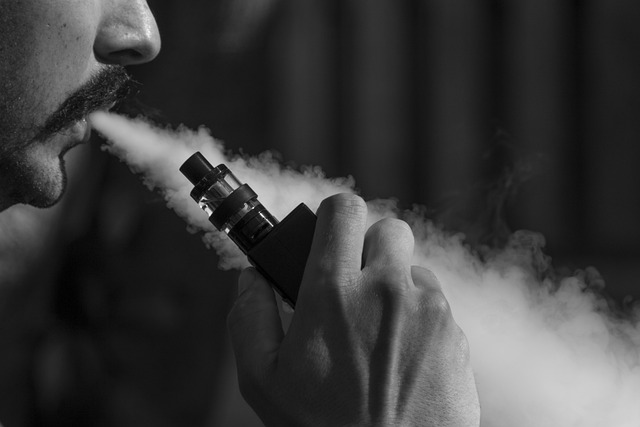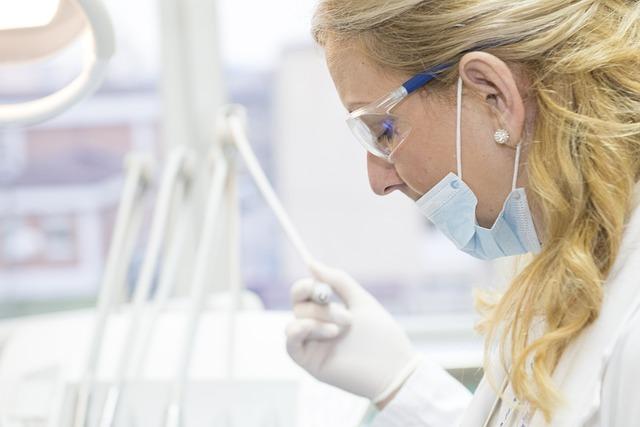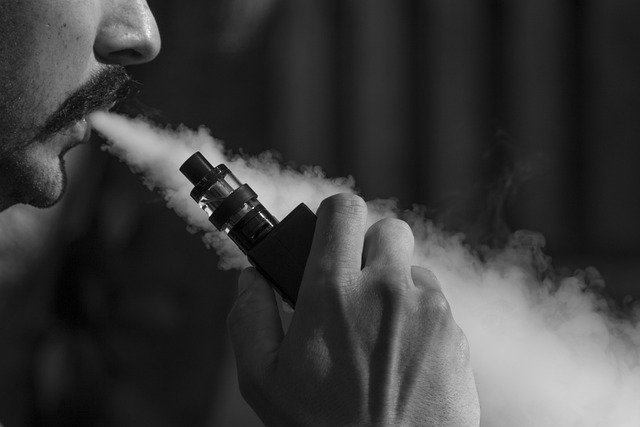Dental Implants and Smoking: Is It a Good Idea?
Are you considering dental implants but are a smoker? While dental implants are a remarkable solution for restoring missing teeth, it’s essential to understand the potential impact of smoking on the success of the procedure. In this article, we will delve into the crucial relationship between dental implants and smoking, providing you with a confident and knowledgeable perspective. By the end, you’ll have a clear understanding of whether it’s a good idea to proceed with dental implants while being a smoker. So, let’s uncover the facts and guide you towards making an informed decision about your dental health.
1. The Impact of Smoking on Dental Implant Success Rates
Smoking has a significant negative impact on the success rates of dental implants. Numerous studies have shown that individuals who smoke are more likely to experience complications during the implant process and have a higher risk of implant failure compared to non-smokers. Here are some key points to consider:
- Increased risk of infection: Smoking weakens the immune system and impairs blood circulation, making smokers more susceptible to infections after dental implant surgery. This can lead to delayed healing and an increased likelihood of implant failure.
- Compromised bone integration: The success of dental implants depends on the ability of the implant to fuse with the surrounding bone. Smoking disrupts this process by reducing blood flow to the area, impeding bone regeneration, and hindering osseointegration. As a result, the implant may not properly integrate with the jawbone, leading to instability and potential implant failure.
Additionally, smoking has been linked to other detrimental effects on oral health, including:
- Increased risk of periodontal disease: Smoking is a major risk factor for gum disease, which can weaken the supporting structures of the teeth and compromise the long-term success of dental implants.
- Delayed healing and poor oral hygiene: Smoking slows down the healing process and can negatively impact oral hygiene practices. This can further contribute to complications and increase the likelihood of implant failure.

2. Understanding the Risks: Smoking and Dental Implant Complications
Smoking can have detrimental effects on the success of dental implants. It is important to understand the risks associated with smoking and dental implant complications in order to make informed decisions about your oral health. Here are some key points to consider:
- Delayed healing: Smoking can significantly delay the healing process after dental implant surgery. Nicotine in cigarettes restricts blood flow, reducing oxygen and essential nutrients to the implant site. This impairs the body’s ability to repair and regenerate bone and soft tissues, leading to a higher risk of implant failure.
- Infection: Smoking weakens the immune system, making it more susceptible to infections. Dental implant complications, such as peri-implantitis (inflammation around the implant), are more likely to occur in smokers. These infections can cause bone loss and ultimately lead to implant failure.
- Implant failure: Studies have shown that smoking increases the risk of implant failure by as much as two times compared to non-smokers. The long-term success of dental implants is compromised in smokers due to the negative effects of smoking on bone integration and healing.
Given these risks, it is highly recommended to quit smoking before undergoing dental implant surgery. By eliminating smoking, you can improve the chances of a successful implant procedure and minimize the potential for complications. Your dentist will be able to provide further guidance and support in your journey towards a healthier, smoke-free lifestyle.

3. Exploring the Connection: How Smoking Affects Dental Implant Healing
Smoking is known to have detrimental effects on overall health, but its impact on dental implant healing is often overlooked. Understanding the connection between smoking and dental implant healing is crucial for patients considering dental implant procedures. Here, we explore how smoking interferes with the healing process and compromises the success of dental implants.
1. Delayed Healing: Smoking can significantly slow down the healing process after dental implant surgery. Nicotine and other harmful chemicals in cigarettes restrict blood flow, reducing the supply of oxygen and essential nutrients to the surgical site. This impairs the body’s natural ability to heal and regenerate bone and soft tissues around the dental implant. As a result, smoking prolongs the recovery time and increases the risk of complications such as infection and implant failure.
2. Increased Implant Failure: Smoking has been linked to a higher rate of dental implant failure. The chemicals in tobacco smoke weaken the immune system, making it harder for the body to fight off infections. This increases the risk of peri-implantitis, a serious inflammatory condition that can lead to bone loss and implant failure. Additionally, the presence of nicotine in the body interferes with the integration of the dental implant into the jawbone, reducing its long-term stability. Therefore, smokers are more likely to experience implant failure and may require additional procedures to salvage or replace the implant.

4. Weighing the Pros and Cons: Should Smokers Consider Dental Implants?
When considering dental implants, smokers should carefully weigh the pros and cons to make an informed decision. While dental implants offer numerous benefits, it’s important to consider how smoking can affect the success of the procedure and the long-term outcome.
Pros of Dental Implants:
- Dental implants provide a durable and long-lasting solution for missing teeth.
- They look and feel like natural teeth, enhancing both appearance and confidence.
- Implants offer improved chewing and speaking abilities, restoring normal oral function.
- They help maintain the integrity of the jawbone, preventing bone loss that can occur with missing teeth.
Cons of Dental Implants for Smokers:
- Smoking can negatively impact the healing process after implant surgery, increasing the risk of complications.
- Tobacco use can reduce blood flow to the gums, which can impede proper healing and increase the likelihood of implant failure.
- Smokers are more prone to developing periodontal disease, which can compromise the stability of dental implants.
- Long-term smoking can contribute to bone loss, which may affect the long-term success of the implants.
Considering both the pros and cons, smokers should consult with their dentist to assess their individual situation and determine if dental implants are a suitable option. Quitting smoking or reducing tobacco use before undergoing the procedure can significantly improve the chances of successful implantation and long-term outcomes.

5. Expert Advice: Tips for Smokers Considering Dental Implants
Considering dental implants as a smoker? While smoking can have detrimental effects on your oral health, it doesn’t necessarily mean you are ineligible for dental implants. Here are a few expert tips to help smokers like you make informed decisions when considering this dental procedure:
- Consultation with a dental professional: Before proceeding with dental implant surgery, it is crucial to consult with a qualified dentist or oral surgeon who specializes in implant dentistry. They will evaluate your specific case and provide personalized advice based on your oral health, smoking habits, and overall well-being.
- Smoking cessation: Quitting smoking is highly recommended before undergoing dental implant surgery. Smoking can hinder the healing process and increase the risk of implant failure. Your dental professional can guide you through smoking cessation programs or recommend resources to help you quit smoking successfully.
- Meticulous oral hygiene: Maintaining excellent oral hygiene is paramount for smokers considering dental implants. Regular brushing, flossing, and rinsing with an antimicrobial mouthwash can help minimize the risk of infection and promote better healing after the implant procedure.
Remember, while smoking can pose challenges in the dental implant process, it doesn’t mean you can’t explore this option. By seeking expert advice, quitting smoking, and adopting a rigorous oral hygiene routine, you can improve your chances of successful dental implant surgery and enjoy a healthier smile in the long run.
6. Enhancing Implant Success: Strategies for Smokers to Minimize Risks
Smoking can significantly increase the risks associated with dental implant surgery. However, there are strategies that smokers can adopt to enhance the success of their implants and minimize potential complications:
1. Quit Smoking: The most effective way to minimize the risks associated with smoking is to quit altogether. By quitting smoking, you not only improve your overall health but also significantly increase the chances of a successful dental implant procedure.
2. Consult with Your Dentist: Before undergoing the implant procedure, it is crucial to have an open and honest discussion with your dentist. They will assess your overall oral health and provide personalized recommendations to minimize risks. Your dentist may suggest a specific timeline for quitting smoking prior to the procedure or provide assistance in identifying smoking cessation programs.
7. Making an Informed Decision: Factors to Consider Before Getting Dental Implants as a Smoker
Before deciding to get dental implants as a smoker, it is important to consider several factors that can affect the success of the procedure and the long-term outcome. While smoking does not automatically disqualify you from getting dental implants, it can have a significant impact on the healing process and the overall durability of the implants. Here are some key factors to take into account:
- Smoking and Healing Time: Smoking can impede the body’s natural healing process, which is crucial for the successful integration of dental implants. It can slow down blood flow, reduce oxygen levels, and impair the immune response, all of which can hinder the healing of the implant site. This means that smokers may experience a longer healing time compared to non-smokers and may have a higher risk of complications such as infection.
- Implant Success Rate: Studies have shown that smoking can have a negative impact on the success rate of dental implants. Smokers are more likely to experience implant failure or complications such as implant loosening, bone loss, and gum disease. The chemicals in tobacco smoke can interfere with the osseointegration process, which is the fusion of the implant with the jawbone, leading to a higher risk of implant failure.
While these factors indicate the potential risks and challenges associated with getting dental implants as a smoker, it is essential to consult with a dental professional to evaluate your specific situation. They can provide personalized advice, assess your oral health, and help you make an informed decision based on your individual circumstances.
Frequently Asked Questions
Q: Can smokers get dental implants?
A: Yes, smokers can get dental implants, but it is not recommended due to potential complications that may arise during the healing process.
Q: What are the risks associated with dental implants for smokers?
A: Smokers have a higher risk of implant failure compared to non-smokers. Smoking can impair blood flow, delay healing, and weaken the body’s immune response, making it more difficult for the implants to integrate with the jawbone.
Q: How does smoking affect the success rate of dental implants?
A: Research suggests that smoking can significantly decrease the success rate of dental implants. Studies have shown that smokers are more likely to experience implant failure, bone loss, peri-implantitis (infection around the implant), and other complications.
Q: Are there any specific complications that smokers should be aware of?
A: Smokers have a higher risk of developing peri-implantitis, a bacterial infection that affects the tissues surrounding the implant. This can lead to bone loss and ultimately implant failure if left untreated.
Q: Can quitting smoking improve the chances of successful dental implants?
A: Absolutely! Quitting smoking before undergoing dental implant surgery can significantly improve the chances of a successful outcome. By quitting, blood flow improves, allowing better oxygen and nutrient supply to the surgical area, promoting healing and reducing the risk of complications.
Q: How long should a smoker wait after quitting before getting dental implants?
A: It is generally recommended to wait at least six to eight weeks after quitting smoking before proceeding with dental implant surgery. This allows the body some time to recover and show improved healing capabilities.
Q: Are there any alternative options for smokers who want dental implants?
A: Smokers who are determined to get dental implants may consider alternative treatments, such as bone grafting or sinus lift procedures, to increase the chances of success. These procedures can help improve bone quality and quantity, providing a more stable foundation for the implants.
Q: What advice do dental professionals give to smokers considering dental implants?
A: Dental professionals strongly advise smokers to quit smoking before considering dental implants. Quitting smoking not only improves the success rate of the procedure but also enhances overall oral health, reduces the risk of complications, and promotes better long-term implant stability.
Q: Is it possible for dental implants to be successful in long-term smokers?
A: While success rates may be lower, dental implants can still be successful in long-term smokers. However, it is crucial for smokers to understand the potential risks and complications associated with smoking and dental implants, and to work closely with their dental professional to minimize these risks.
Wrapping Up
In conclusion, the question of whether dental implants and smoking are a good idea has been thoroughly examined. Based on the available evidence, it is clear that smoking poses significant risks and complications for individuals seeking dental implants.
Firstly, smoking has been found to negatively impact the success rate of dental implants, leading to a higher likelihood of implant failure. This is primarily due to the detrimental effects of smoking on oral health, such as compromised blood flow, impaired healing, and increased risk of infection.
Secondly, smoking is known to hinder the osseointegration process, which is crucial for the proper integration of the implant with the jawbone. Studies have shown that smokers experience delayed bone healing and reduced bone density, making them less suitable candidates for dental implants.
Moreover, smoking has been linked to an increased risk of peri-implantitis, a serious gum infection that can cause implant loss if left untreated. This highlights the importance of maintaining good oral hygiene and avoiding smoking to minimize the risk of complications.
Lastly, it is crucial to note that quitting smoking before undergoing dental implant surgery can significantly improve the chances of a successful outcome. By quitting, individuals can enhance their overall oral health, promote faster healing, and reduce the risk of implant failure.
In summary, the evidence unequivocally suggests that smoking and dental implants are not a good combination. Quitting smoking is strongly recommended for those considering dental implants, as it can greatly improve the chances of a successful and long-lasting outcome. Prioritizing oral health and making informed decisions will ultimately lead to a healthier, happier smile.





